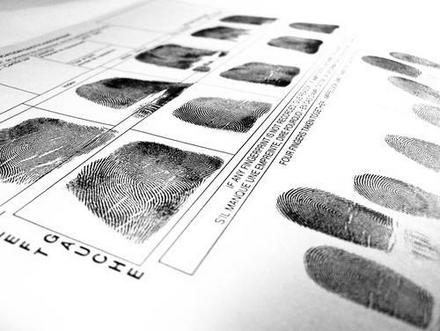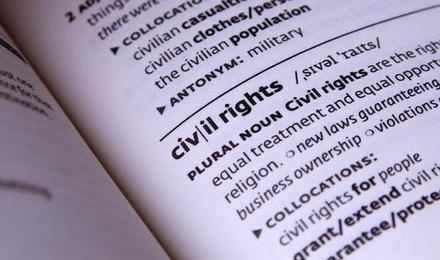TELEPHONES ANSWERED 24 HOURS A DAY
Recent Blog Posts
Should a Crime against Police be Considered a Hate Crime?
 In the wake of police shootings and retaliatory attacks on police officers, the National Fraternal Order of Police is pushing for a change to the statutory definition of a “hate crime” to include crimes committed against police officers. Presently, a “hate crime” is a criminal offense committed against another person or person’s property when the crime is motivated by the victim’s race, religion, disability, ethnic origin, or sexual orientation. A conviction for a hate crime generally results in much more serious penalties for the offender.
In the wake of police shootings and retaliatory attacks on police officers, the National Fraternal Order of Police is pushing for a change to the statutory definition of a “hate crime” to include crimes committed against police officers. Presently, a “hate crime” is a criminal offense committed against another person or person’s property when the crime is motivated by the victim’s race, religion, disability, ethnic origin, or sexual orientation. A conviction for a hate crime generally results in much more serious penalties for the offender.
Is the Hate Crime Statute Due to be Changed?
At first blush, police supporters may celebrate and support the FOP’s legislative push to change the hate crime statute. Designating something as a hate crime communicates to society that the action or behavior is particularly reprehensible and deserving of greater punishment than other crimes. Changing the hate crime statute to include crimes against law enforcement officers is a strong way to show the nation stands behind its officers.
Testimony of Prior Crimes or Bad Acts in a Federal Trial
 A recent federal criminal trial was brought to an abrupt halt when the testimony for a key witness for the prosecution revealed some unsavory information about the defendant’s past. According to reports, the witness was asked how he recognized the defendant in a surveillance video when the witness “volunteered” that he recognized the defendant because of a previous incident when the defendant was arrested and convicted for burglary. This revelation – that the defendant was previously arrested and convicted of burglary – brought the trial to a halt.
A recent federal criminal trial was brought to an abrupt halt when the testimony for a key witness for the prosecution revealed some unsavory information about the defendant’s past. According to reports, the witness was asked how he recognized the defendant in a surveillance video when the witness “volunteered” that he recognized the defendant because of a previous incident when the defendant was arrested and convicted for burglary. This revelation – that the defendant was previously arrested and convicted of burglary – brought the trial to a halt.
Why Was the Trial Stopped?
In this particular instance the trial was stopped because the witness offered evidence that is generally not permitted in a criminal trial. According to federal rules that govern the conduct of criminal trials, the prosecution is generally not permitted to introduce evidence of prior crimes or “bad acts” the defendant committed as a way of suggesting that the defendant is more likely to commit the crime with which he or she is charged. For instance, a prosecutor prosecuting a charge of burglary against an individual generally cannot use the fact that the defendant committed other burglaries for the purpose of suggesting the defendant is more likely to have committed the present burglary. If such evidence comes out at trial, a mistrial can generally be achieved as the “prejudice” caused by the revelation of this information is usually so great that the defendant can no longer be guaranteed a fair trial.
Mail and Wire Fraud – What is This Offense?
 Two individuals were recently convicted of mail and wire fraud in the southern district of Illinois after pleading guilty to the offense. By pleading guilty to the offense, both men avoided a trial on these charges. While many who hear the charge “mail and wire fraud” rightly assume that the charges are serious, describing exactly what constitutes mail and wire fraud is a more difficult task.
Two individuals were recently convicted of mail and wire fraud in the southern district of Illinois after pleading guilty to the offense. By pleading guilty to the offense, both men avoided a trial on these charges. While many who hear the charge “mail and wire fraud” rightly assume that the charges are serious, describing exactly what constitutes mail and wire fraud is a more difficult task.
Two Examples of Mail and Wire Fraud
The two individuals who recently pled guilty in Illinois serve as examples of what can constitute mail and wire fraud. The first man operated a scheme headquartered in Orlando, Florida, and involved telemarketers for the defendant’s various companies calling timeshare owners. The telemarketers would falsely represent to the owners that they knew of individuals interested in buying the timeshare properties and then demand that the owners front a certain amount of money for closing costs, which the telemarketers claimed would be refunded to them. Instead, however, the defendant and his cohorts simply pocketed the closing costs without selling a single timeshare.
Is It an Internet Threat or Protected Speech?
 The justices of the Supreme Court of the United States recently heard arguments in an internet threat case that could have serious ramifications for First Amendment rights in our digital age. Anthony Elonis was convicted in 2011 of threatening his ex-wife and a kindergarten class (amongst others) through a series of Facebook posts. Some of these posts were rather graphic. According to his attorney, the posts were in the form rap lyrics and were a therapeutic exercise. The critical question for the U.S, Supreme Court to decide is whether Elonis’ statements violated laws against making criminal threats or whether his posts constituted free speech, and were therefore protected by the First Amendment.
The justices of the Supreme Court of the United States recently heard arguments in an internet threat case that could have serious ramifications for First Amendment rights in our digital age. Anthony Elonis was convicted in 2011 of threatening his ex-wife and a kindergarten class (amongst others) through a series of Facebook posts. Some of these posts were rather graphic. According to his attorney, the posts were in the form rap lyrics and were a therapeutic exercise. The critical question for the U.S, Supreme Court to decide is whether Elonis’ statements violated laws against making criminal threats or whether his posts constituted free speech, and were therefore protected by the First Amendment.
Threat Laws in Illinois
Depending on the exact circumstances surrounding a communication such as Elonis’, a person who committed a similar act in Illinois could face charges such as cyberstalking (if the threat was communicated over the internet), stalking, or threatening a public official (for example). A “threat” can include any communication that indicates the speaker or communicator will:
Speeding in a Construction Zone Carries Significant Penalties
 Sometimes a temptation is too much to bear: orange cones restricting Illinois drivers to a single lane of traffic, a speed limit set far below the normal limit for the road, and no one else around. Regardless of whether he is trying to reach his destination faster or she simply fails to see the traffic signage, an Illinois driver who is charged with speeding in a construction zone can face serious fines and administrative penalties.
Sometimes a temptation is too much to bear: orange cones restricting Illinois drivers to a single lane of traffic, a speed limit set far below the normal limit for the road, and no one else around. Regardless of whether he is trying to reach his destination faster or she simply fails to see the traffic signage, an Illinois driver who is charged with speeding in a construction zone can face serious fines and administrative penalties.
What is a Construction Zone?
Although most individuals are familiar with what a “construction zone” is, the term actually has a specific legal definition. A “construction zone” must meet the following characteristics:
- Be an area of roadway; and
- Have signage from the Department of Transportation, Toll Highway Authority, or other local agencies alerting drivers that a construction or maintenance speed zone is being approached; or
Sexual Assault Statute of Limitations and Why They Are Important
 Recently, the press has been regularly reporting on sexual assault allegations various women have leveled against comedian and actor Bill Cosby. With the stories about Cosby often come discussions of how statute of limitations will prevent him from being charged with some crimes in some jurisdictions. This has led to many discussions that use these allegations to argue that statutes of limitations should be eliminated. It is important to understand what the statutes of limitations actually are here in Illinois, and to understand why statutes of limitations are an absolutely essential part of any fair criminal justice system.
Recently, the press has been regularly reporting on sexual assault allegations various women have leveled against comedian and actor Bill Cosby. With the stories about Cosby often come discussions of how statute of limitations will prevent him from being charged with some crimes in some jurisdictions. This has led to many discussions that use these allegations to argue that statutes of limitations should be eliminated. It is important to understand what the statutes of limitations actually are here in Illinois, and to understand why statutes of limitations are an absolutely essential part of any fair criminal justice system.
Not All Homicide is Created Equally
 Most individuals know that taking another human life without a defense or justification is a crime. But not all takings of life are punished in the same manner. Depending on the circumstances surrounding the taking of another life, a person can find him- or herself charged with any one of a variety of homicide-related offenses. Obviously, the more serious the homicide offense, the more severe the penalties a criminal defendant can expect to face. Aggressive and knowledgeable defense counsel can help defendants by arguing the facts support a less-severe form of homicide and ensure their clients face the least severe penalties as possible.
Most individuals know that taking another human life without a defense or justification is a crime. But not all takings of life are punished in the same manner. Depending on the circumstances surrounding the taking of another life, a person can find him- or herself charged with any one of a variety of homicide-related offenses. Obviously, the more serious the homicide offense, the more severe the penalties a criminal defendant can expect to face. Aggressive and knowledgeable defense counsel can help defendants by arguing the facts support a less-severe form of homicide and ensure their clients face the least severe penalties as possible.
First Degree Murder
First degree murder occurs when an individual kills another and:
- Intends to kill or cause great bodily harm to another or knows his or her actions will cause death to that other individual;
What Relief Can I Obtain in an Illinois Civil Rights Violation Case?
 When you have been a victim of a civil rights violation in Illinois, the effects on you and your family can be particularly hurtful. Whether your rights were violated by police officers who used too much force against you during an arrest, a hiring manager who considered your age, race, or national origin in making a decision not to hire you, or your employer who passed you over for a promotion, the damages and injuries you experience can be devastating. Both federal and state law provide remedies and damages and individuals can recover when their civil rights have been violated. The precise nature of the violation or violations will dictate what sort of remedies you can receive.
When you have been a victim of a civil rights violation in Illinois, the effects on you and your family can be particularly hurtful. Whether your rights were violated by police officers who used too much force against you during an arrest, a hiring manager who considered your age, race, or national origin in making a decision not to hire you, or your employer who passed you over for a promotion, the damages and injuries you experience can be devastating. Both federal and state law provide remedies and damages and individuals can recover when their civil rights have been violated. The precise nature of the violation or violations will dictate what sort of remedies you can receive.
Injunctions and Orders
If a private employer has discriminated against you either as a job applicant or as an employee, a court can enter injunctions or orders requiring the employer to take certain remedial actions. These actions can be to stop any discriminatory practices, to take steps to ensure further discrimination does not occur, and (in some cases) to give you the position or promotion you were denied.
Attorney-Client Privilege in Illinois
 Not all conversations are admissible in court. The law gives special protection to communications between certain individuals, prohibiting the introduction of these communications in court. One of the more famous “protected conversations” is the conversation that takes place between an attorney and his or her client. The idea behind protecting these conversations from disclosure is to allow clients to speak freely and truthfully with their attorneys. Despite this legal protection, however, some law enforcement officers still attempt to listen into what clients tell their attorneys, a violation of that attorney-client privilege.
Not all conversations are admissible in court. The law gives special protection to communications between certain individuals, prohibiting the introduction of these communications in court. One of the more famous “protected conversations” is the conversation that takes place between an attorney and his or her client. The idea behind protecting these conversations from disclosure is to allow clients to speak freely and truthfully with their attorneys. Despite this legal protection, however, some law enforcement officers still attempt to listen into what clients tell their attorneys, a violation of that attorney-client privilege.
In a recent publicized case, a criminal defendant was brought in for an interview relating to a manslaughter investigation. As most such interviews are, this particular interview was recorded using a video camera and microphone. When police needed to take a break, they left the defendant in the interview room with his two defense attorneys – and they left the recording equipment on. Over the next 11 minutes of conversation, police recorded a discussion between the defendant his attorneys about trial strategy. Law enforcement claimed the eavesdropping was unintentional, while the defendant argued that not only were his constitutional rights violated, but that law enforcement violated federal and state eavesdropping laws.
Entering Pleas and Plea Agreements in Illinois Criminal Cases
 Roughly nine out of every 10 criminal cases in the United States are resolved through some sort of plea agreement. Usually, these agreements require the defendant to accept some criminal liability for some criminal offense in return for a more lenient sentence or punishment. The manner in which the criminal defendant accepts or rejects liability for the charged crime is through entering a plea.
Roughly nine out of every 10 criminal cases in the United States are resolved through some sort of plea agreement. Usually, these agreements require the defendant to accept some criminal liability for some criminal offense in return for a more lenient sentence or punishment. The manner in which the criminal defendant accepts or rejects liability for the charged crime is through entering a plea.
Types of Pleas in Illinois
There are four types of pleas a criminal defendant may enter to charges in Illinois. Each type of plea can have serious ramifications, so it is best to consult with an Illinois criminal defense attorney before entering any plea:
- Not Guilty. A plea of not guilty is entered when the defendant denies that he or she is responsible for the crime charged. By entering this plea, it becomes necessary for the prosecution to prove the defendant’s guilt beyond a reasonable doubt at a trial. A defendant who enters a not guilty plea is legally permitted to change his or her plea at a later time.




